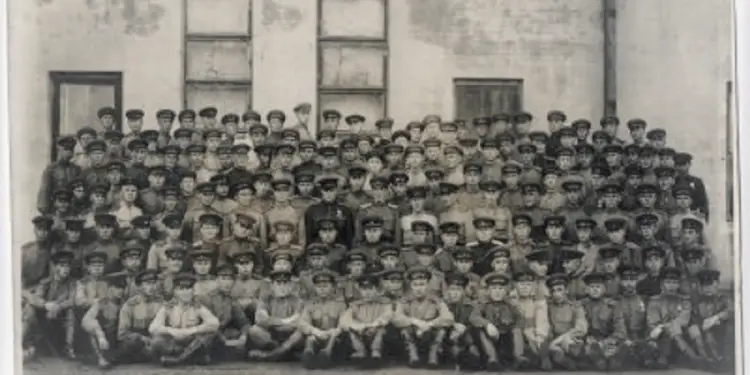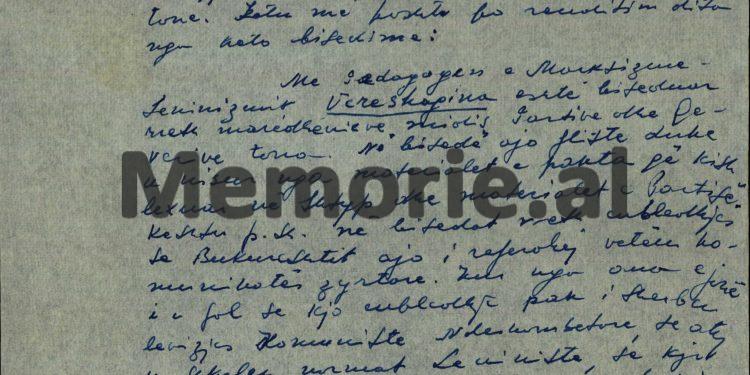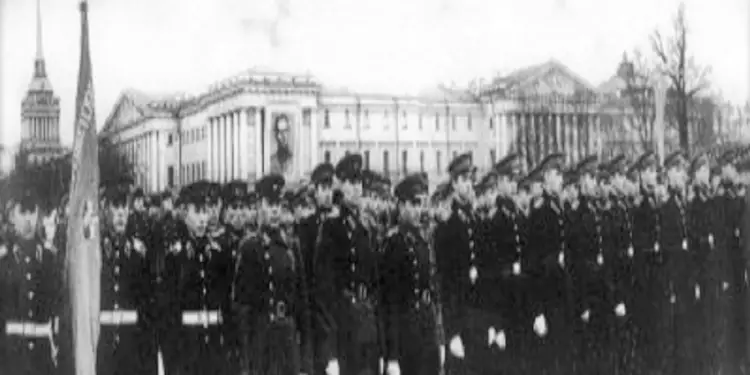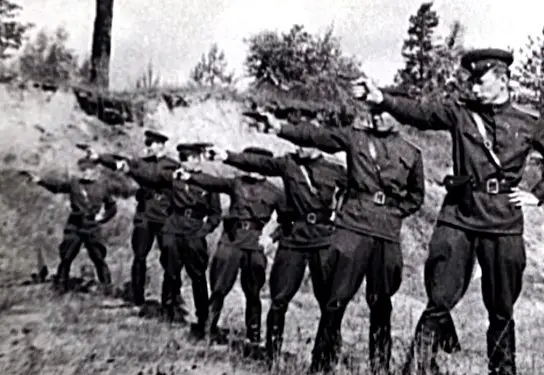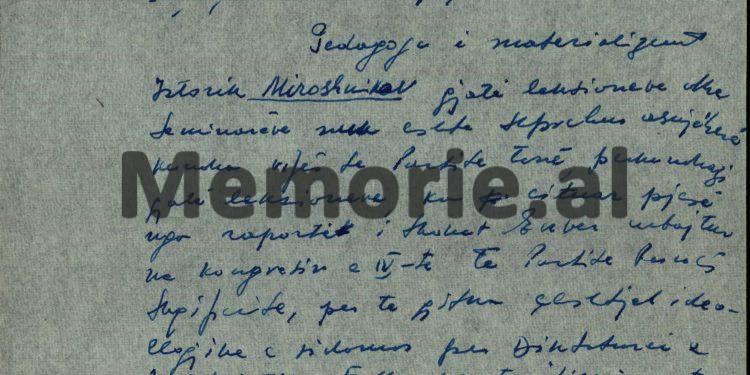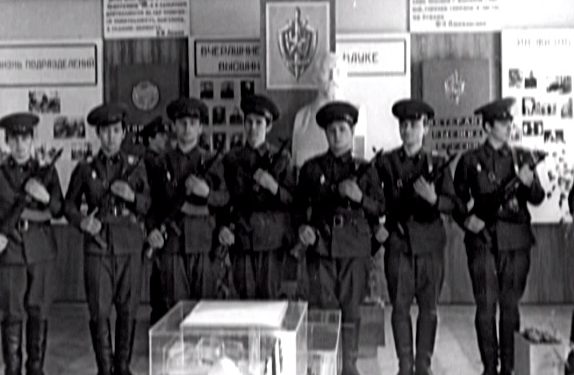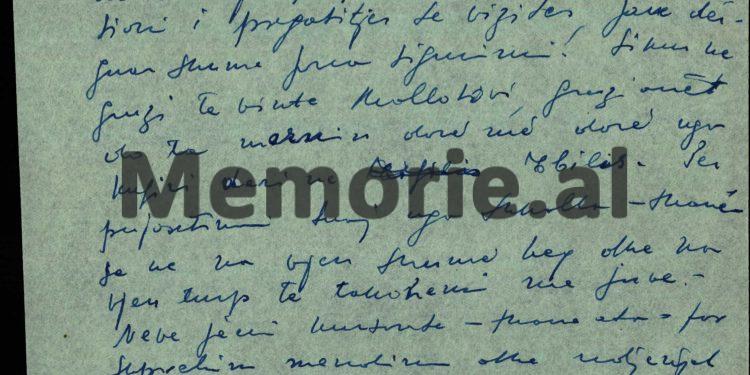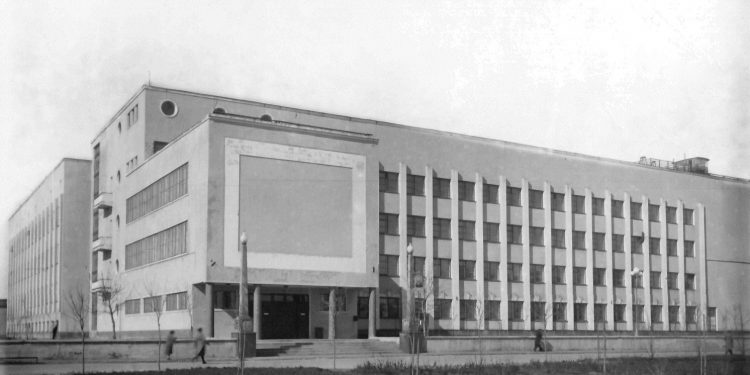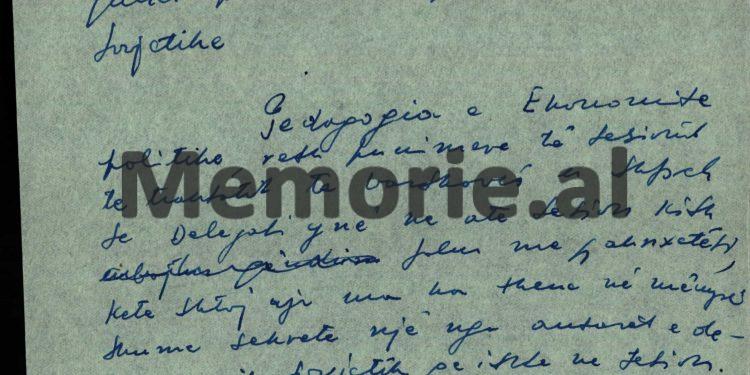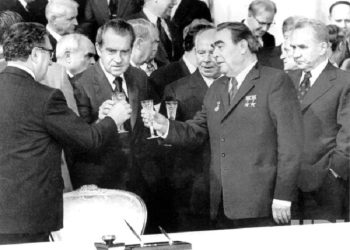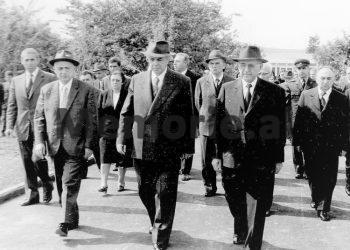Dashnor Kaloçi
Part eight
Memorie.al publishes some archival documents with the logo “Top secret”, issued by the Central State Archive in Tirana (Fund of the former Central Committee of the ALP) which belong to 1961 and are part of a voluminous folder with letters , reports, information, reports, instructions, petitions, etc., where it is about the beginning of contradictions and the breakdown of official Tirana’s relations with the Soviet Union, which at that time was very much felt by Albanian students who were then studying in schools and universities of the Soviet Union, who, by order received from Tirana, discontinued their studies and waited for instructions to return to Albania. The complete file of Albanian students in the former Soviet Union, where most of them, mainly those who attended Military Academies, High School of State Security, Police, Border, Justice, etc., had major problems and were met with many vicissitudes with the official Russian authorities, leading to the measure of arrest as well as the intervention of the Albanian military attaché in Moscow, Major General Halim Ramohito, to unblock the situation and return the Albanian military students to their homeland.
Continued from the previous issue
R e l a t i o n
On conversations made in seminars and in Moscow, during school life
The comrades of the third year of the last year, in the seminars and conversations they had with their Soviet or People’s Democrat colleagues, defended the Marxist-Leninist straight line of our party. Below, we are listing some of these conversations.
With the pedagogue of Marxism called Vereshagina, there was talk about the relationship between the two parties, and our governments. On this topic, she spoke based on the few materials she had read in the press and the Party materials.
Thus, for example, the one for the Bucharest Meeting referred only to the official communiqué. When we told her that this meeting was a black and shameful stain on the world communist movement, she said that in vain you try to fill my mind with such things.
You, she said, are being misinformed and there may be enemies in your government who are pushing these things. But you, she stressed, behave like the Yugoslav revisionists, who tell us that we are with the Soviet Union, and with Lenin, but against Stalin.
As for you, you say that we are with Stalin, but against Khrushchev. Vereshagina was told about the position currently held by the Presidium of K.Q. of the USSR, and especially that of Khrushchev, to the Party and our people. She was also asked about the issue of wheat, loans for the 5-year plan, the construction of the Palace of Culture, the military base, etc.
When we asked her to explain what our Party’s mistakes were, she shrugged and did not know what to say. All these conversations, she informed the Command and the same discussions, served as a reason for the expulsion of comrade Thoma Duro. Comrades Thoma Duro, Kristo Salovaci, Dhimitër Llazari, etc. also participated in this conversation. We rejected her views with concrete facts, until she had nothing more to say.
The professor of Criminal Law, Lieutenant Colonel Sergeyev, when he saw the pamphlet on the prisons and camps of Yugoslavia became interested in asking us if these things were true. For our part, it was explained that these things, not only were true, but we also referred to concrete examples taken from colleagues who have worked in this sector.
After this conversation, he met another lecturer, his deputy, Major Teter. The latter, in the course of the conversation, said that the Soviet government is in favor of a policy of rapprochement with Yugoslavia, but the soldiers of the Yugoslav divisions would do well not to continue to point their weapons at us, but at least to remain neutral.
He stressed that it would be even more worthy for the Yugoslav army to buy weapons from our army and not from the American one. But they, based on their nationalist positions, have claims to borders with other socialist states. In this conversation, friends were included: Kristo Salovaci, Koço Ligori, Isuf Kullolli, Shyqyri Luzati, Thanas Peçi, Fahri Kraja, and Perlat Çaushi.
The professor of ‘Historical Materialism’, Miroshnikov, during the lectures and seminars, has never spoken against the line of our party. On the contrary, during the lecture he quoted parts of the report kept by Comrade Enver during the IV Congress of the ALP. Even on the issue of the ‘Cult of the Individual’, he read us some letters unknown to us of Stalin, in which he wrote that he was against the exaggeration of this cult.
But unfortunately, he, especially recently, Miroshnikov told us, allowed his cult to intensify. To our question, whether in his opinion Stalin could be considered a classic of communism or not, he answered that: if he reads his work in a philosophical way, he comes to the conclusion that Stalin enters the classics. He described the report held by Comrade Enver Hoxha at the IV Congress as of scientific value that serves the communist movement.
The director of the school canteen, in a conversation with our friends, said that she hoped to come to Albania with her husband, to see the works of the Palace of Culture in Tirana, as her husband was in the group of Soviet engineers and architects who were dealing with this project. But he had told her that: our work on this architectural work was finally stopped.
Then our friends told him that the works for this building had not been stopped permanently and that they would be completed by Albanian architects and engineers. But the Soviets themselves were the first to abandon the works and even all the construction materials that came by boat to the Port of Durres, returned them back to the Soviet Union.
She added that recently more and more cracks are being noticed, but we should not be upset, as these issues would be resolved soon. “I did not know all this, but my husband told me,” she said. Our government hopes to resume work on the Palace of Culture in Tirana and it will eventually be called the “Palace of Albanian-Soviet friendship”.
The ‘Political Economy’ pedagogue, on the subject of the Warsaw Pact meetings, told us that a member of the Soviet delegation had confidentially told him that the Albanian delegate, in discussing the problems, had degraded into debates and fervor. But when we asked her what debates the Soviet delegate was talking about, she could not explain further.
In conversations with Soviet cadets of Georgian nationality, they generally approved of our party line. The Georgians stressed that if they, too, had been in the same position as Albania, they would have acted in the same way. In Georgia, Khrushchev does not enjoy sympathy, they said, and that he has 6 months without visiting that country. And when he last came there, he had taken with him hundreds of Security officers to protect him.
Molotov’s reputation is different from ours and they stated that if he were to visit Georgia, they would be ready to support him from the border to Tbilisi. For the exclusion of our school friends, they told us that they are very sorry and stressed that as Soviet trainees, they are ashamed of themselves that these mistakes are happening with Albanians. Even when they escorted us, they thanked us and greeted us with tears in their eyes. Comrade Isuf Kullolli participated in these conversations.
Most of the various academic staff and professors have also welcomed our departure from school with sadness and regret. They consider it unfair and stupid, even the expulsion of some Albanian trainees from the School of the State Security Committee.
With the comrades of the People’s Democracies, no talks have taken place about the position of our party line, because most of them are either not informed about it, or have been misinformed. We have often been fully supported by the Vietnamese, the Hungarians, special Polish elements, as well as the Czechs and Romanians.
Recently, the Hungarians became interested in our relations with the USSR, as they told us that they knew nothing. We helped them with some materials in Russian where they stood out, Comrade Enver’s speech, brochures about the prisons and camps of Yugoslavia, etc.
Head of group III
Major Kristo Salovaci
Tirana on 15.6.1961
R e l a t i o n
In an exhibition organized in the school premises with images from the development of the IV Congress of our Party, we were torn a photo in which Comrade Enver Hoxha had appeared with a group of congress delegates. For this vile and unprecedented act, we protested in front of the School Command and demanded that action be taken.
In the meeting we had on this issue with the Commander of the Faculty, Colonel Grigorjev, we cannot detach him from the continuation of a series of incidents that are happening against us, the country, and our party. We presented to him all the negative actions that took place between the Soviets and the Albanians, from the cancellation of the works in the Palace of Culture, the departure of the ship with construction materials to the Soviet Union, the issue of the Pashaliman base, the episodes with the Albanian sailors in Leningrad, etc.
He told us that these problems should be solved by our governments and that we should look at the curriculum. We referred to official documents and articles published in the press.
He told us nothing about bilateral relations between our governments. As for the issue of tearing up the photograph, we protested to the Commander-in-Chief of the State Security High School, General Kuljenkov.
He told us that this was a pure political act and assured us that measures would be taken to prevent such acts in the future. I add that in conversations with the comrades of the ‘People’s Democracies’, they have supported us for the right position of our party line.
They have expressed regret over the arbitrary actions taken against the government and the Albanian people by the Soviets. I reported all these conversations I had at our embassy in Moscow./Memorie.al
Thoma Duro
6/15/1961
The next issue follows




